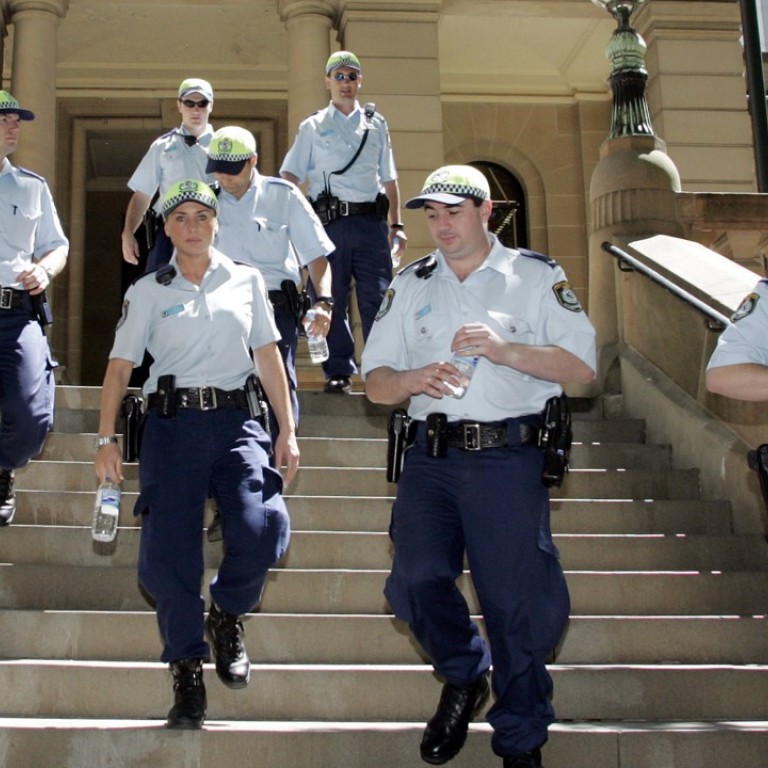
Australian state police under fire after shredding rape victim’s statement
Guardian Australia reported on Friday that police conducted 59 internal investigations into computer hacking during a 13-month period, and took no further action in 52 of those cases
The Queensland police culture is now “way worse” than before the landmark reforms of the Fitzgerald inquiry, say advocates, who are preparing to launch a new independent group to highlight the state’s lack of oversight of police misconduct and corruption.
Guardian Australia revealed this week that Queensland police shredded the rape statement of a woman known as Lyla – without having previously spoken to her or investigating her claim – and then later told her they couldn’t “wave a magic wand and fix all of your problems”.
The police said on Thursday, immediately after The Guardian posted its story, that the shredding of Lyla’s statement would be investigated by their ethical standards command. Lyla lodged a formal complaint with the police on 23 July and had not been contacted yet.
The premier, Annastacia Palaszczuk, and the police commissioner, Ian Stewart, were asked to comment on the case, amid growing concerns the state’s police and legal systems were failing to protect vulnerable women. The premier’s office did not respond, and the police said Stewart was unavailable.
The justice advocate Renee Eaves had her personal details accessed on the police database 1,400 times by about 400 officers. She now supports victims of police misconduct and has helped establish the new group, which will be launched this month.
“Things are way worse than they were pre-Fitzgerald. We are far worse,” Eaves said. “The aim behind the committee is to highlight the inadequate oversight of police misconduct and police corruption, to highlight nepotism and maladministration.
Things are way worse than they were pre-Fitzgerald. We are far worse
“You’re always going to get rogue officers, but what we need is we need leaders who are willing to pluck them out as soon as the standard drops down, that’s when these people who are in leadership roles need to step up.
“The way that women are being treated when they make complaints, the way abuse towards women is being overlooked, is a problem.”
Eaves has started the group with other leading advocates, including Narelle Dawson-Wells, an experienced clinical psychologist and the wife of former Queensland attorney general Dean Wells. Four years ago, Dawson-Wells was charged by police with perjury, after she gave evidence at the trial of a man she claimed sexually assaulted her.
“My case is all about what can happen to women who report sexual assault to police,” Dawson-Wells told The Courier-Mail when the case against her was discontinued last year. “Women in Queensland now need to know if you report an offence to a police officer they can later have you charged, without interview.”
Eaves points to several other examples she says highlights problems within the police culture.
They include the case, reported by the Brisbane Times this week, of a woman whose personal information was accessed by a police officer, and then passed to her abusive former partner.
This week, a constable from a station in Brisbane’s south was found guilty of groping a female colleague’s breast. He told the jury during the trial that pinching and poking was common at the station, and that a male officer flicked his genitals, The Courier-Mail reported.
Eaves said she had been contacted by many people who believed the police inappropriately accessed their personal data. She said the new committee would meet this month and wanted to work with the government and senior police to institute more accountability.
Women in Queensland now need to know if you report an offence to a police officer they can later have you charged, without interview
The Queensland civil liberties council president, Michael Cope, told Guardian Australia on Thursday the state’s Crime and Corruption Commission (CCC) needed to take a more active role in police misconduct, particularly data breaches, instead of matters being dealt with through internal investigation.
Cope also raised concerns about security measures to monitor and restrict access to personal data held by police.
Guardian Australia reported on Friday that police conducted 59 internal investigations into computer hacking during a 13-month period, and took no further action in 52 of those cases.
The Queensland police said on Friday they had reformed their internal investigation process last year “to increase timeliness and consistency”.
“The system continues to maintain the integrity of investigations and has oversight from the CCC,” they said. “Officers … have roughly 6 million interactions with the public every year with an average of 1000 complaints against police. As first responders, police officers deal with lots of traumatic and serious assaults and domestic and family violence offences on a regular basis.
“The majority of police officers attend these with compassion, understanding and are rigorous and ethical in the way they investigate these matters and continue to assist the victims.”
In relation to data access breaches, the police said: “In 2016, QPS management issued a directive to all staff, both sworn and unsworn, about the appropriate use of police information and members were warned that breaching such policy would be considered misconduct and may result in criminal charges.”

